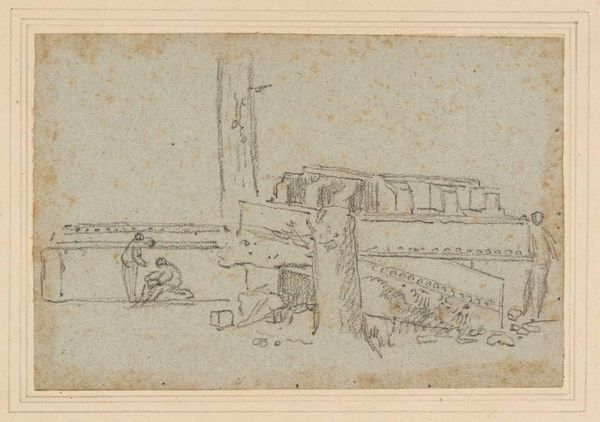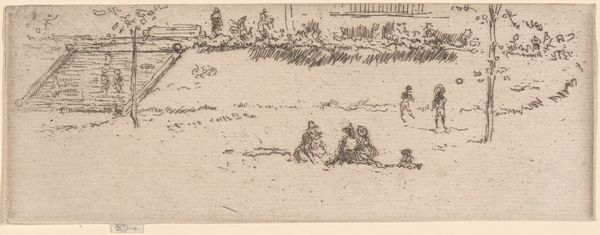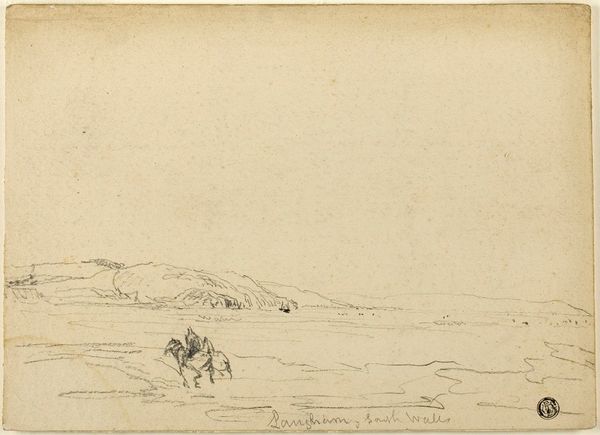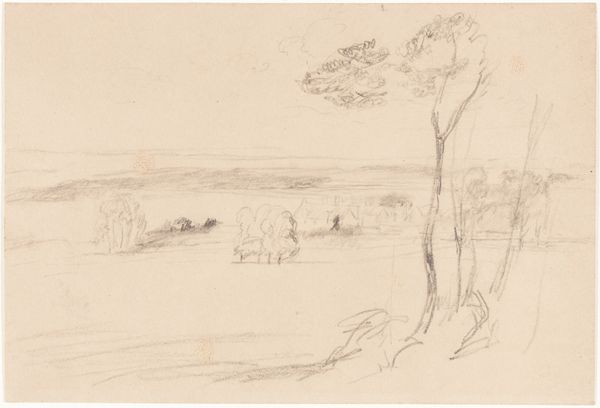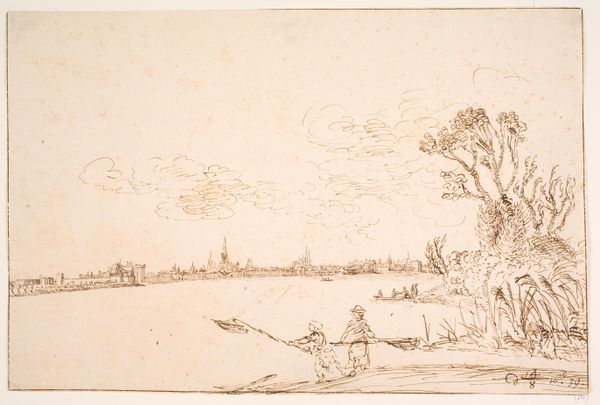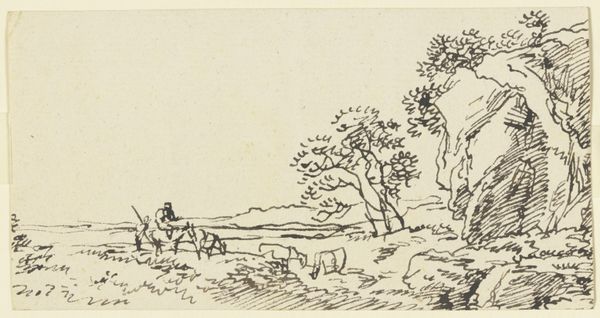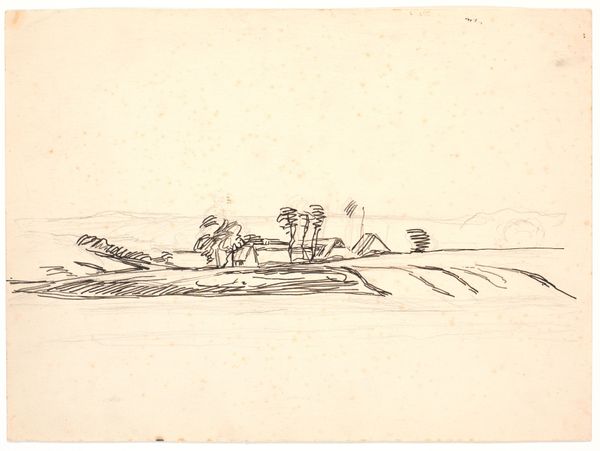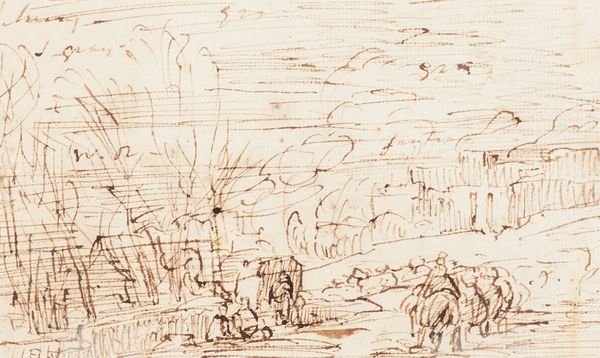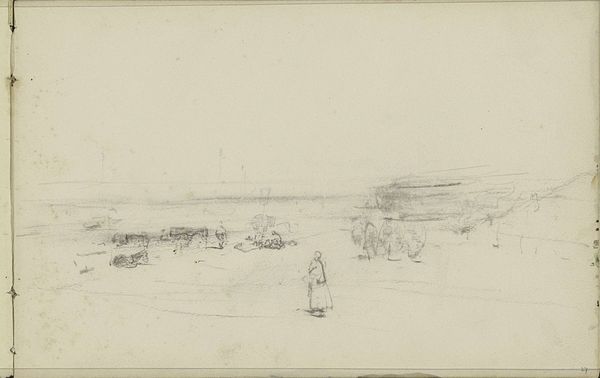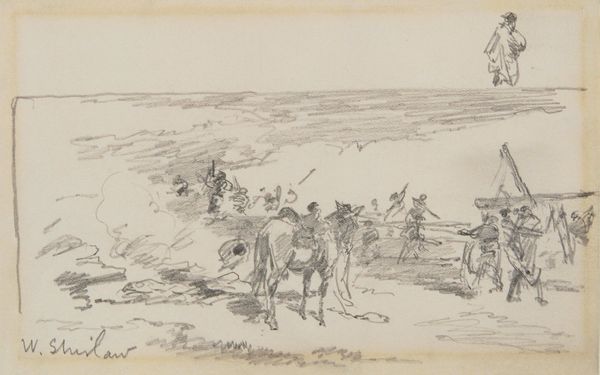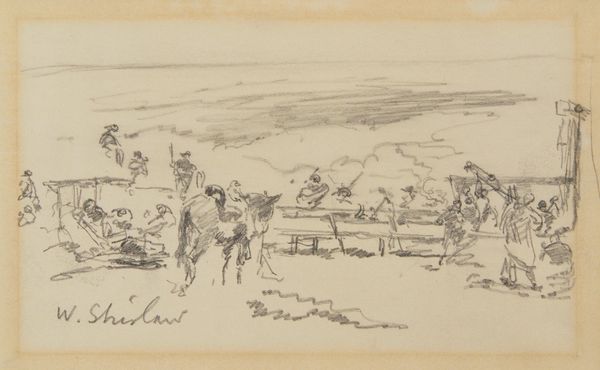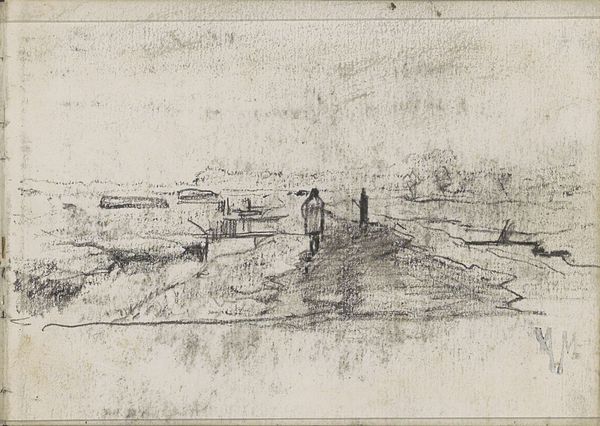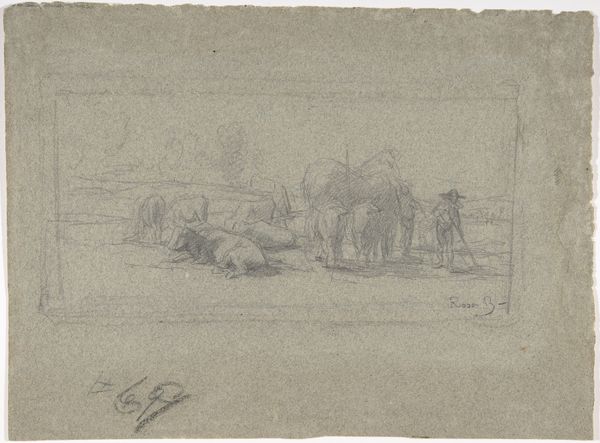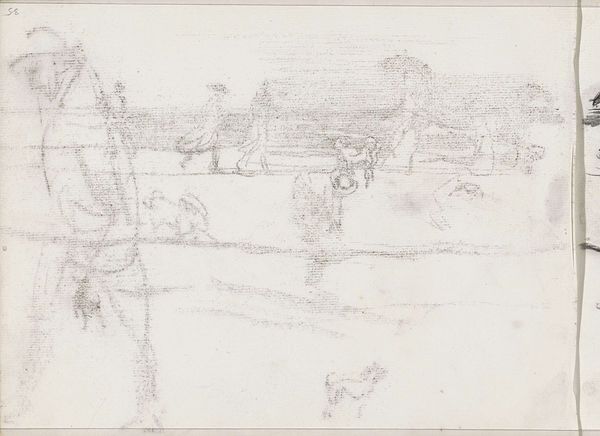
drawing, pencil
#
drawing
#
impressionism
#
pencil sketch
#
landscape
#
pencil
#
genre-painting
Copyright: Public Domain: Artvee
Curator: Today we’re looking at James Abbott McNeill Whistler's "The Beach, Ostend," created in 1887. Whistler, an American artist, spent much of his career in Europe. This particular piece is a drawing, a pencil sketch, offering us a glimpse into leisure on the Belgian coast. Editor: Oh, it's lovely! Instantly gives me this breezy, almost faded memory kind of feeling. The sparse lines and muted tones evoke a serene day at the beach, a perfect escape. It reminds me a little bit of some of those turn-of-the-century photos. Curator: That’s perceptive. Whistler's Impressionistic approach to landscape challenges traditional academic painting; think of how he captured light and atmosphere here. "The Beach, Ostend" reveals his interest in capturing fleeting moments of everyday life through a carefully crafted composition, even in something that appears quite informal. Editor: The sketch-like quality is intriguing. It feels so raw and spontaneous, like we're looking at his personal sketchbook. I am quite compelled by the figures in this. What do you think Whistler intended by this focus on genre, painting everyday scenes? Curator: Precisely, and his artistic choices directly confront the rigid societal norms of the period. He captures scenes of ordinary people, at leisure, emphasizing democratic representation in art. It’s crucial to recognize this within the broader historical and political context of class and social change in late 19th-century Europe. Editor: Mmm, interesting. But personally, I get such a sense of freedom. Like watching life unfold on the beach and capturing this. What an immersive perspective to observe society! Maybe he just enjoyed this scene for itself, not that it necessarily goes against anything you mentioned! Curator: And I understand that sense of wonder! By turning away from academic styles and subjects, Whistler helped pave the way for later artists to explore modern life from perspectives that often challenged dominant social narratives. It isn't an exaggeration to assert that art history and activism can be so inextricably intertwined. Editor: Right. This quick exploration of “The Beach, Ostend” just kind of underscores the idea that art is always a mirror. To the world, to ourselves... always something else going on beneath the surface! Curator: Exactly, and Whistler’s contributions remain an invaluable lens to study history, culture, and the enduring power of artistic innovation.
Comments
No comments
Be the first to comment and join the conversation on the ultimate creative platform.
